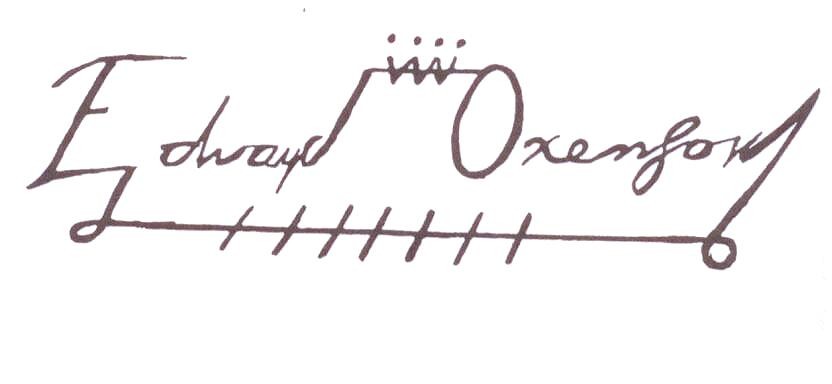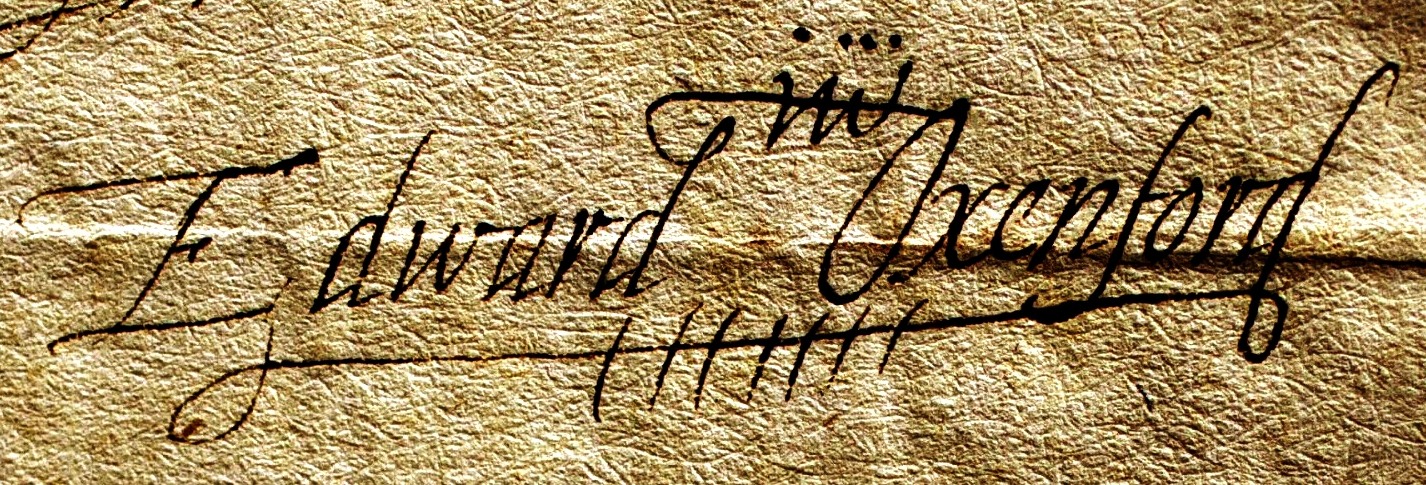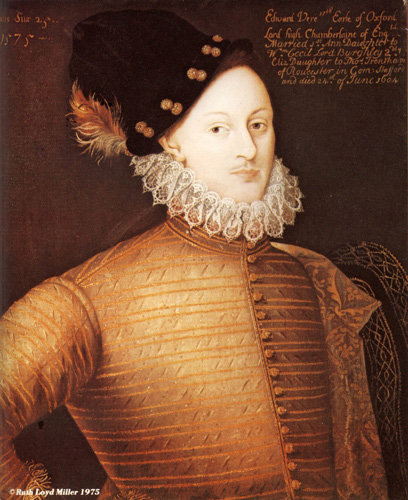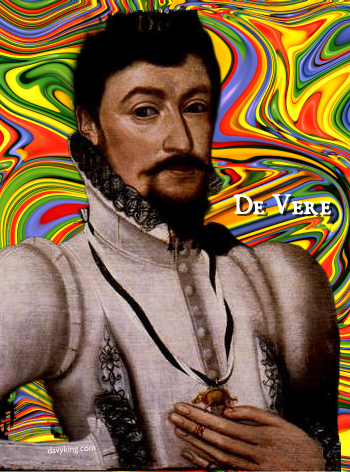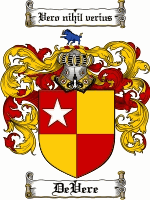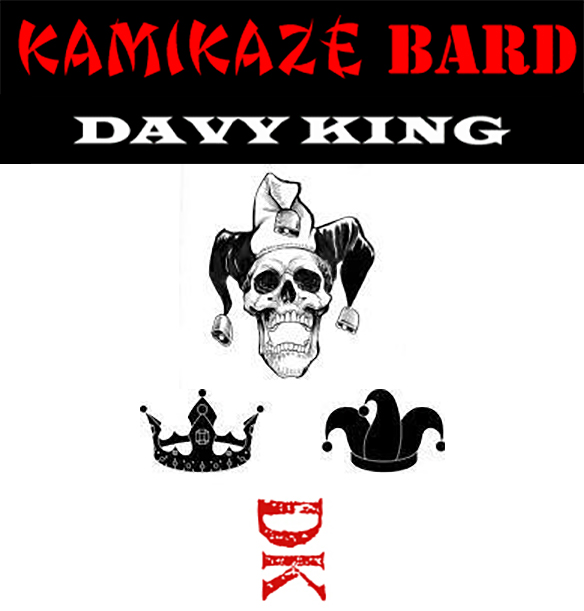|
Walt Whitman:
"I am
firm against Shaksper - I mean the Avon man,
the actor."
- Traubel
"Conceived
out of the fullest heat and pulse of European feudalism
- personifying in unparall'd ways the
medieval aristocracy, its towering spirit of ruthless and gigantic
cast, its own peculiar air and arrogance (no mere imitation)
- only one of the 'wolfish earls' so
plenteous in the plays themselves, or some born descendent and
knower, might seem to be the true author of those amazing works
- works in some respects greater than
anything else in recorded history."
- November Bough
Freud:
"I no longer believe that William Shakespeare
the actor from Stratford was the author of the works that have been
ascribed to him."
- Autobiographical Study (1927), 130
"It is undeniably painful to all of us that
even now we do not know who was the author of the Comedies, Tragedies
and Sonnets of Shakespeare, whether it was in fact the untutored son of
the provincial citizen of Stratford, who attained a modest position as
an actor in London ... "
- Speech accepting the Goethe Prize, 1930.
"We will have a lot to discuss
about. Shakespeare. I do not 'know what still attracts you to the man of
Stratford. He seems to have nothing at all to justify his claim, whereas
Oxford has almost everything. It is quite inconceivable to me that
Shakespeare should have got everything secondhand - Hamlet's neurosis,
Lear's madness, Macbeth's defiance and the character of Lady Macbeth,
Othello's jealousy, etc. It almost irritates me that you should support
the notion."
- letter to Arnold Zweig, April 2, 1937
Charlie Chaplin:
"In the work of the greatest geniuses, humble
beginnings will reveal themselves somewhere, but one cannot trace the
slightest sign of them in Shakespeare... I am
not concerned with who wrote the works of Shakespeare...
but I can hardly think it was the Stratford boy. Whoever wrote them had
an aristocratic attitude."
- My Autobiography, 364
|
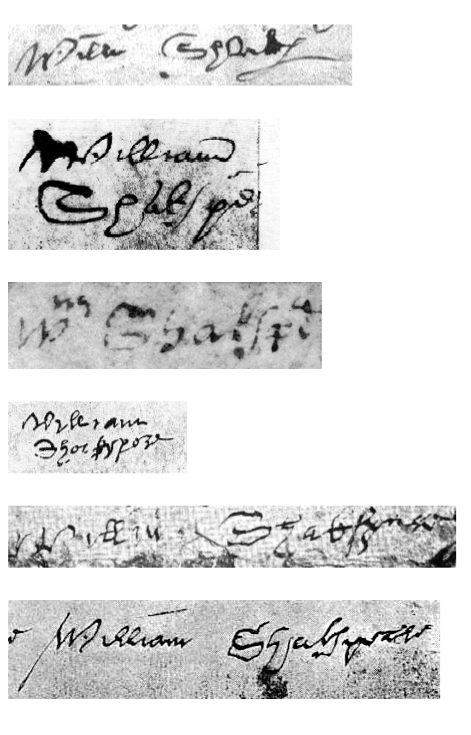
Sh's 6 surviving signatures, rather
ugly scrawls:
Willm Shakp,William
Shakspēr,Wm Shakspē,William Shakspere,Willm Shaksper,William
Shakspeare
|

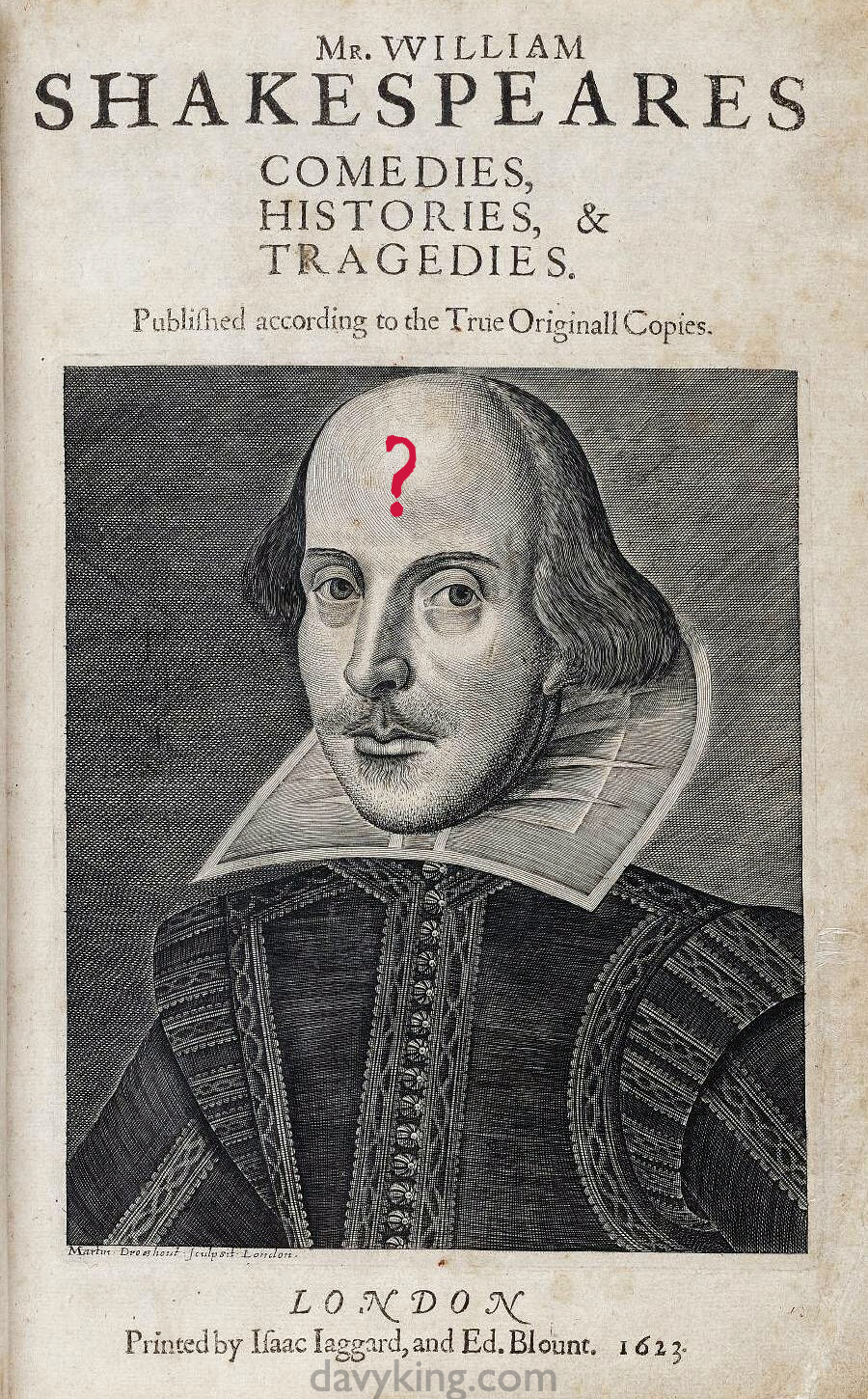
.png)
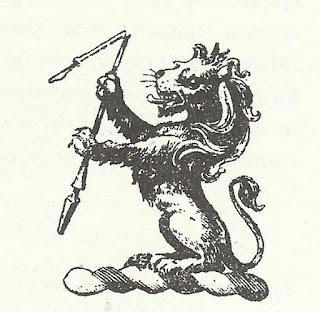
dk.png)

